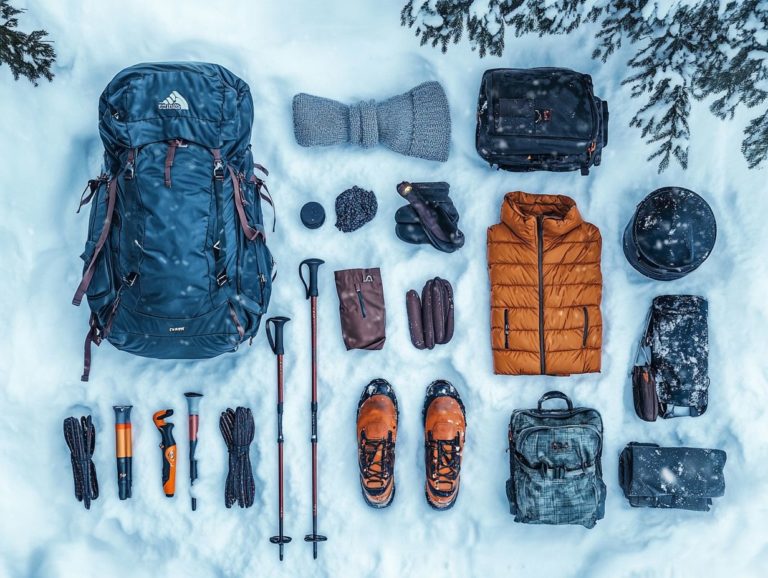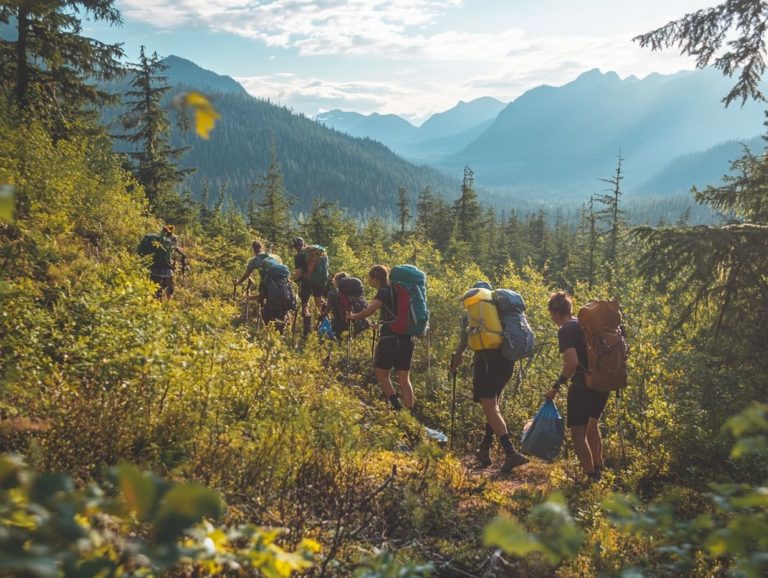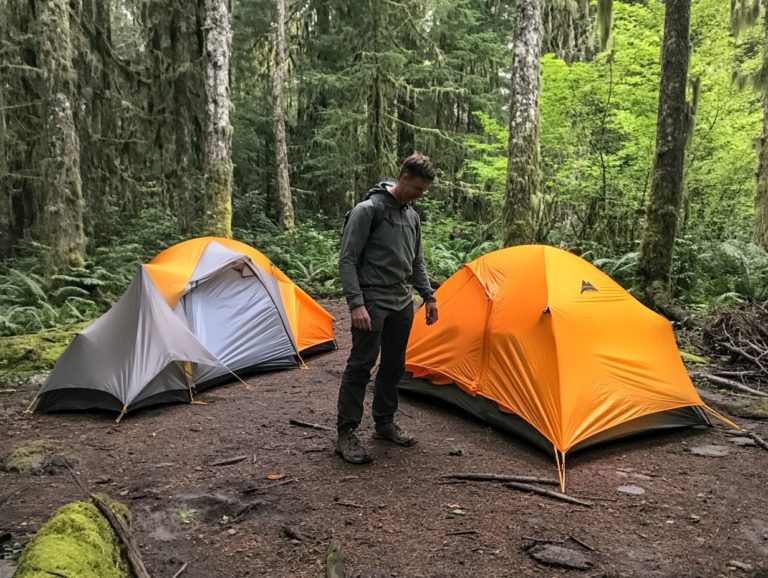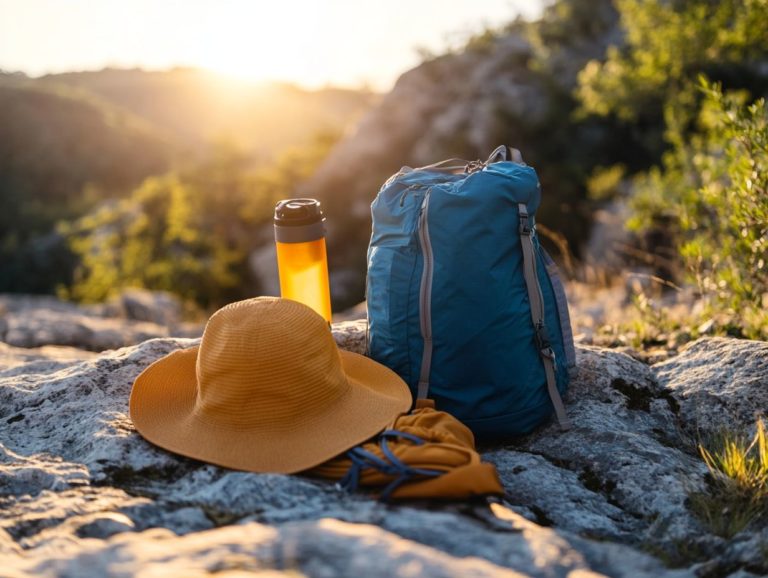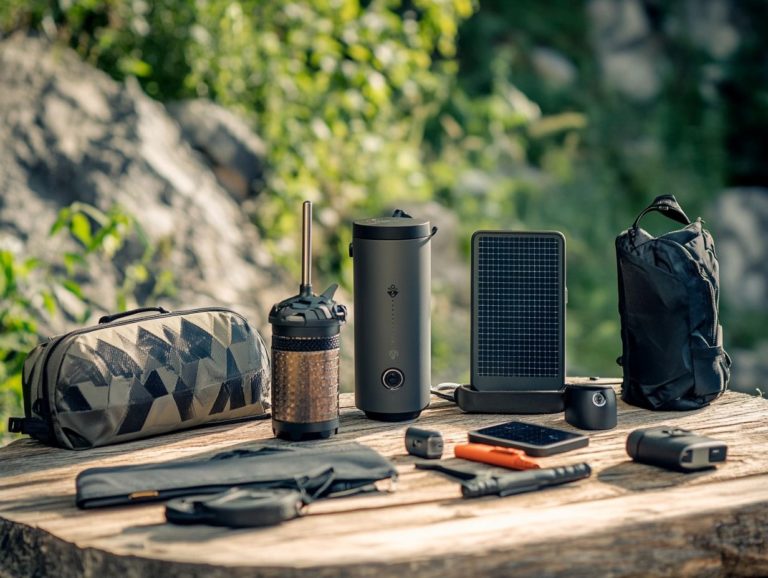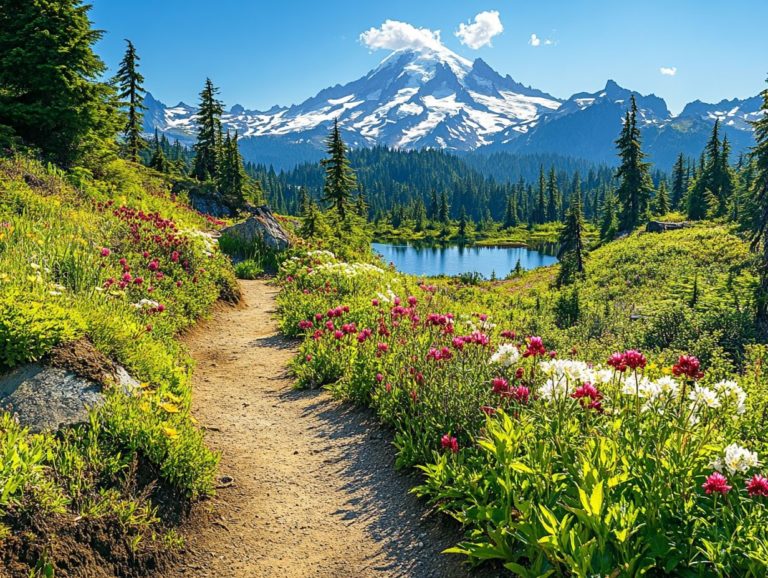Night Hiking: Tips and Gear Recommendations
Night hiking presents a distinctive adventure, turning well-known trails into enchanting landscapes bathed in moonlight. It grants you a wealth of physical and mental health benefits.
As you prepare for a night trek, meticulous planning and the right equipment are essential to ensure both safety and enjoyment. This article will guide you through the essentials of night hiking, covering everything from selecting the ideal trail to the must-have gear and tips for a memorable experience beneath the stars.
Prepare to immerse yourself in the magic of the night!
Contents
Key Takeaways:
- Experience a unique perspective of nature.
- Proper preparation is crucial for safety.
- Invest in high-quality gear for an enjoyable hike.
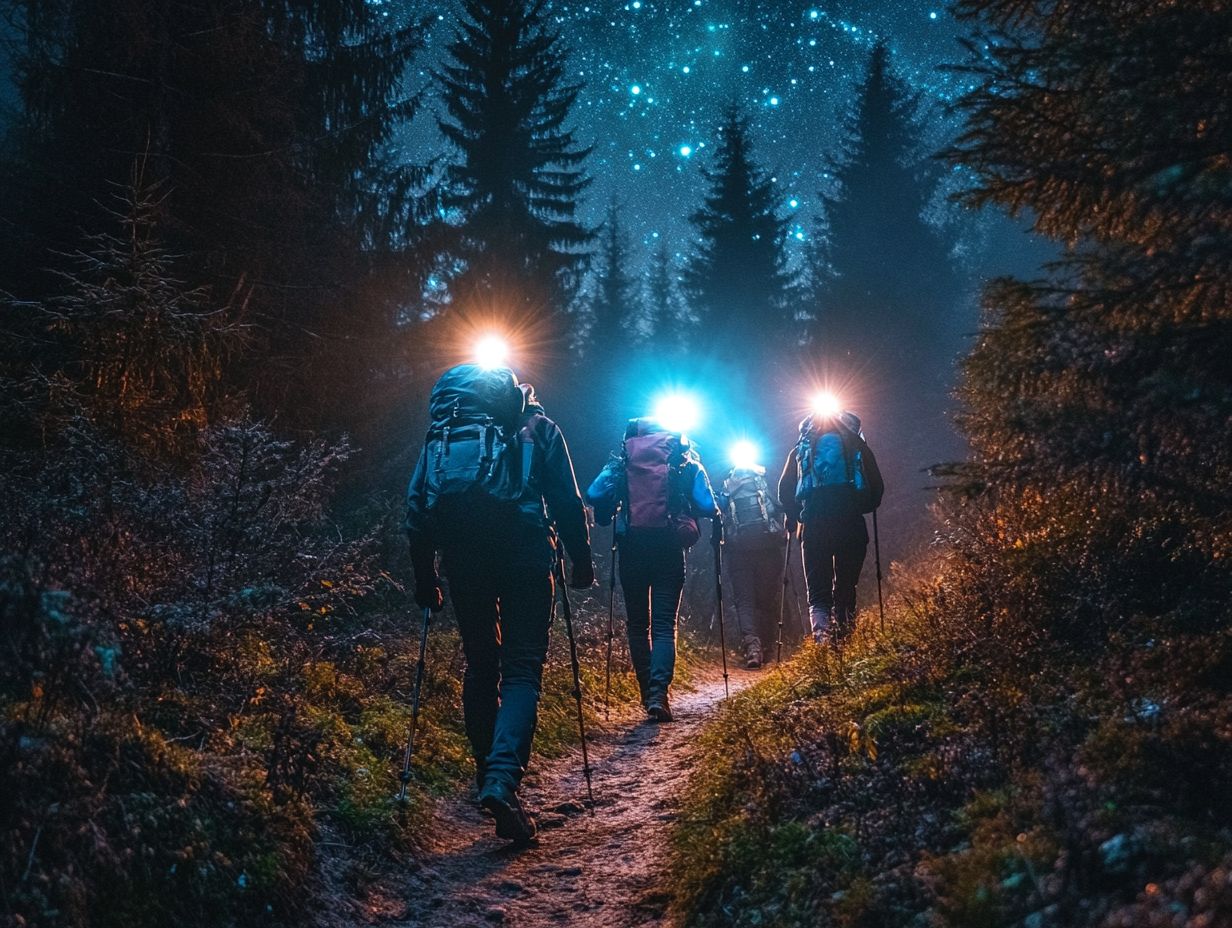
What is Night Hiking?
Night hiking offers an exhilarating adventure. It invites you to explore familiar trails after sunset under the enchanting glow of moonlight. This alternative to daytime hiking opens up a unique perspective of nature, where the night sky filled with stars transforms your outdoor experience into something truly immersive.
Careful planning is necessary, especially with cooler temperatures and the potential for wildlife encounters. Prioritizing safety precautions and selecting the right gear is essential for enhancing your hiking experience.
Unlike traditional hiking, where daylight illuminates your path, night hiking challenges you to rely more on your senses. This weaves an intriguing blend of adventure and mystery. With fewer people on the trails, you can often embrace solitude and serenity, deepening your connection to nature.
While this exhilarating experience comes with challenges like reduced visibility and understanding the terrain beforehand it also rewards you with unparalleled tranquility. Equipping yourself with proper gear, such as headlamps and layered clothing to combat fluctuating temperatures, ensures both safety and comfort.
Meticulously planning your route, taking into account potential wildlife encounters, and sticking to marked trails significantly enhances the enjoyment of this captivating activity.
Benefits of Night Hiking
Night hiking presents a wealth of benefits that elevate both your physical and mental well-being, transforming it into a truly rewarding experience for outdoor enthusiasts like yourself.
As you engage in night hikes, you ll find a unique opportunity to reconnect with nature, immersing yourself in tranquil surroundings. The cooler night air can invigorate your spirit and inspire a newfound confidence as you navigate the challenges that come with it.
Physical and Mental Health Benefits
Night hiking not only enhances your physical health but also plays a pivotal role in boosting your mental well-being. By participating in this activity, you can improve your heart health, stamina, and enjoy the serene tranquility that comes with wandering through nature under the stars.
The rhythmic motion of hiking builds muscle strength and endurance, transforming those steep trails into a more manageable challenge over time. There s something undeniably therapeutic about immersing yourself in the fresh night air, which can effectively reduce anxiety and elevate your mood.
As you navigate the landscape, you not only reap the physical benefits but also gain a profound sense of accomplishment and connection to the environment. Incorporating these nighttime excursions into your routine can lead to a more balanced life, filled with joy, adventure, and a deeper appreciation for the great outdoors.
Are you ready to explore the beauty of the night? Grab your gear and hit the trails!
Preparing for a Night Hike
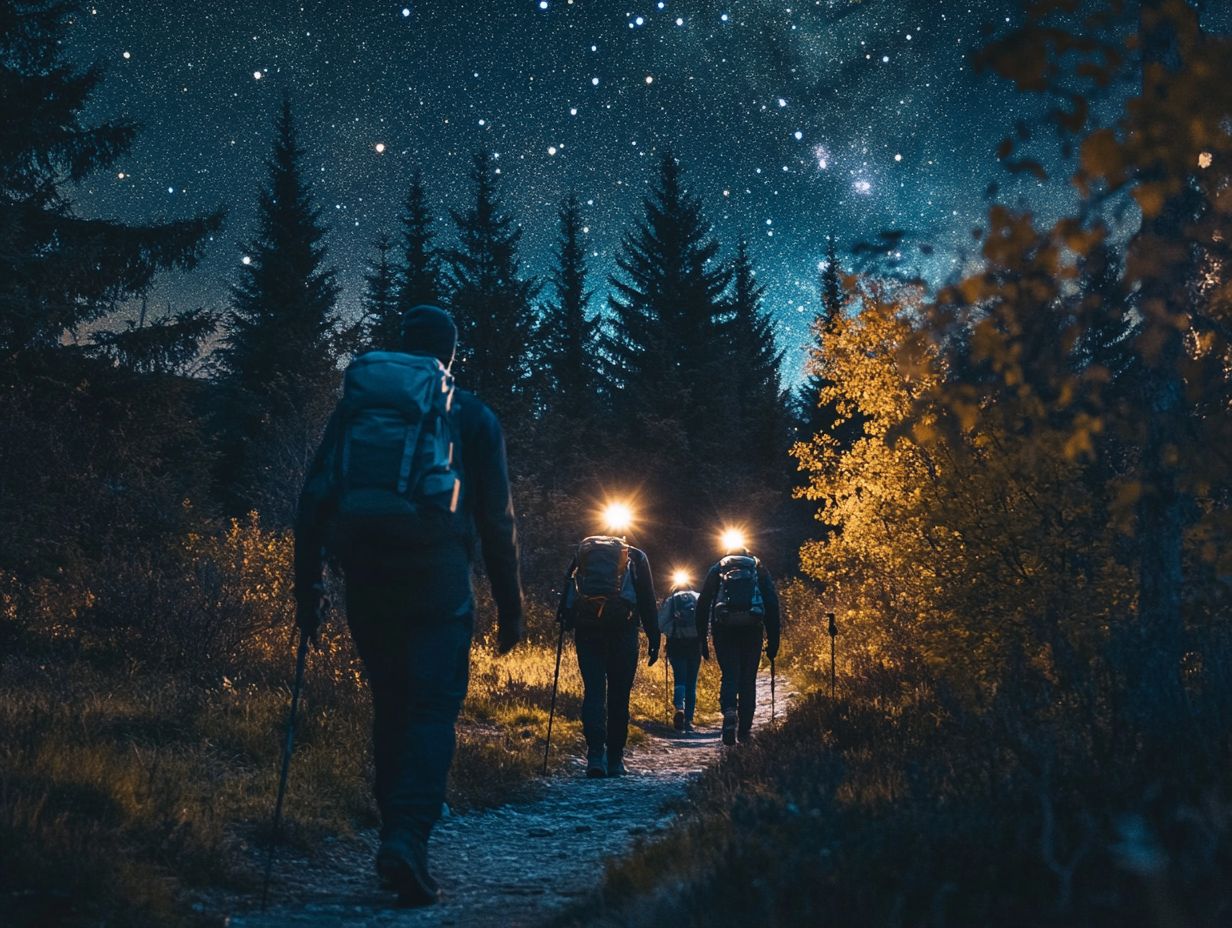
Get ready for an unforgettable night hike with the right preparation! Proper preparation ensures you have the right gear and safety measures to navigate unfamiliar trails after dark.
This means doing thorough research on trails to find familiar paths. Plan your routes around prominent landmarks and gather all the key hiking essentials think headlamp, spare batteries, GPS, and clothes that keep you warm as temperatures dip.
Essential Gear and Safety Precautions
Equipping yourself with essential hiking gear and safety precautions is crucial for a safe and enjoyable night hiking experience. A quality headlamp with spare batteries will ensure you have adequate visibility. Wearing reflective clothing enhances your safety in low-light conditions, making it easier for your hiking group to keep track of each other.
Also, a reliable GPS device or a smartphone with offline maps can be a lifesaver, offering crucial navigation help to prevent getting lost in the dark. Layer your clothing to keep warm. Choose moisture-wicking, insulating, and waterproof layers for the best protection.
Don t wait to pack hot drinks in thermoses! They ll keep you warm and lift your spirits during breaks. Always inform someone about your hiking plans, carry a first aid kit, and follow trail etiquette to ensure safety and show respect for nature.
Choosing the Right Trail
Selecting the right trail is essential for a night hike. Opt for familiar paths to reduce risks and enhance your overall experience.
Consider steering clear of challenging terrain, understanding the trail layout, and identifying visible landmarks. These factors are vital for ensuring safety and enjoyment during your adventure.
Factors to Consider when Selecting a Trail
When choosing a trail for a night hike, consider key factors like wildlife warnings, trail conditions, and the capabilities of your hiking group. Understanding potential wildlife encounters and planning accordingly can significantly boost both safety and enjoyment while soaking in the beauty of the night sky.
Weather conditions, including temperature fluctuations and the possibility of precipitation, can dramatically influence your experience. Check forecasts and prepare for unexpected changes to ensure everyone is dressed appropriately for the evening ahead.
Evaluating your group’s dynamics is essential. By considering fitness levels and hiking experience, you can tailor your trail choice for a truly rewarding outing. Research local wildlife to learn how to minimize encounters and set the stage for a memorable adventure beneath the stars.
Tips for a Successful Night Hike
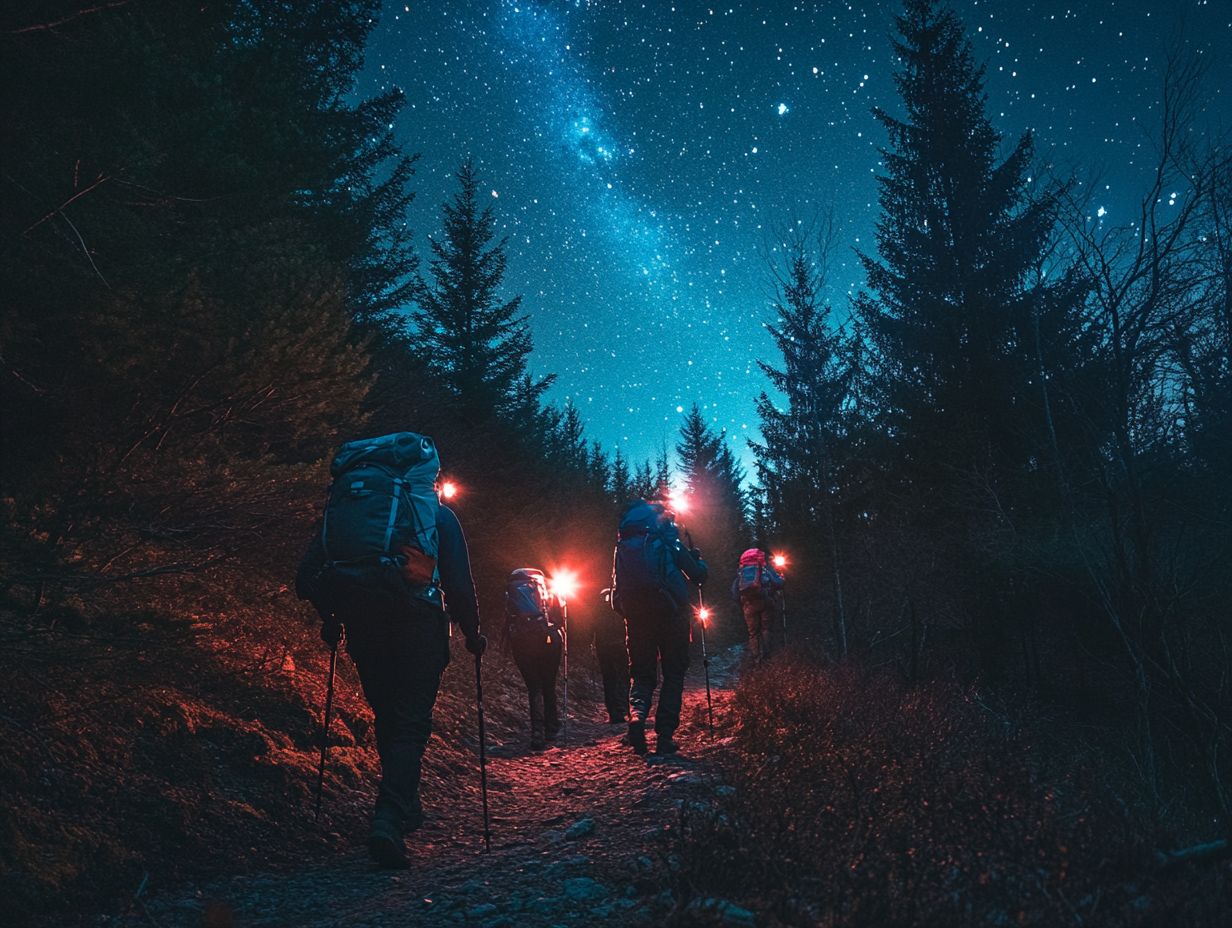
To ensure a successful night hike, embrace essential hiking techniques and strategies that boost your trail navigation and comfort during your outdoor adventure.
Be well-prepared with the right gear, including the best survival gear for nighttime adventures, familiarize yourself with the trail, and understand the nuances of the night environment to greatly enhance your experience.
Effective navigation and comfort techniques are essential for a successful night hike. They allow you to fully enjoy your journey while minimizing risks. By utilizing tools like a headlamp and GPS, and paying close attention to trail markers and landmarks, you can significantly enhance your experience under the stars.
Beyond these tools, learning to read maps that show elevation changes and using a compass will help keep you on the right track. Familiarity with the local terrain and celestial navigation using the North Star can be incredibly beneficial skills to possess.
Make comfort a top priority for an unforgettable night hike! Wearing the right clothing layers will help regulate your body temperature, while staying well-hydrated is crucial for maintaining your energy levels. Packing trail snacks rich in protein and carbohydrates will provide the necessary fuel for an enjoyable adventure in the great outdoors.
Recommended Gear for Night Hiking
Equipping yourself with the right gear is crucial for a fulfilling night hiking experience. This preparation guarantees your safety and enhances your comfort throughout the journey.
Key items to consider include:
- Dependable headlamp
- Spare batteries
- Emergency beacon
- High-energy food to keep your energy levels up as you navigate through the darkness
Must-Have Items for a Safe and Enjoyable Hike
To ensure a safe and enjoyable night hike, equip yourself with essential must-have items that cover all aspects of your adventure. Prioritize a durable headlamp, spare batteries, layers of clothing for cooler temperatures, and plenty of food and water.
Along with these basics, a reliable map and compass are vital for navigating low-visibility conditions, allowing you to explore confidently under the stars. Don’t overlook a first-aid kit; it offers peace of mind and prepares you for unexpected situations.
Proper footwear designed for traction and comfort is also key to minimizing the risk of injury on challenging terrain. And don t forget a portable phone charger to ensure your communication lines are open in emergencies, enhancing both your safety and enjoyment of the experience.
Frequently Asked Questions
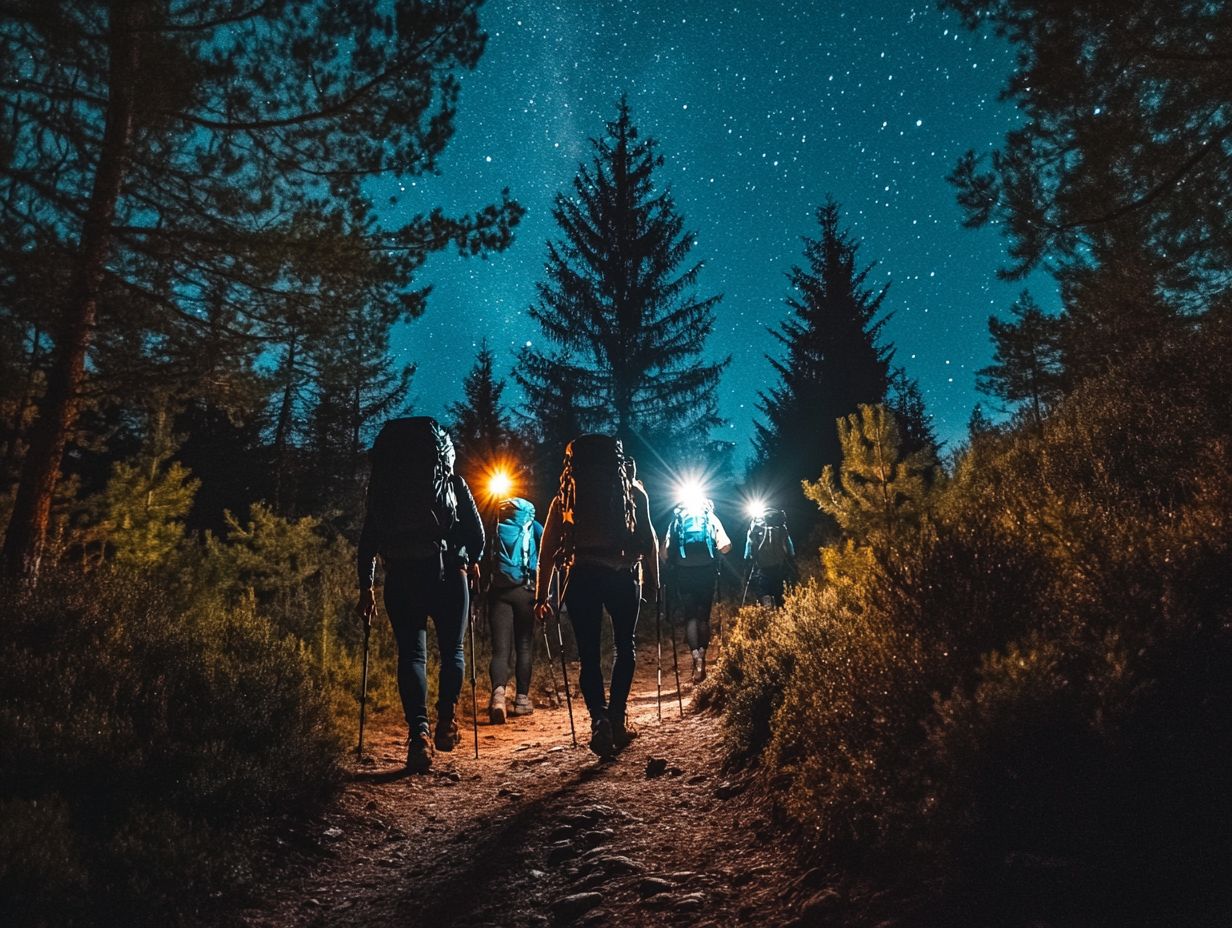
What is night hiking and why should I try it?
Night hiking is the act of hiking during the evening or nighttime hours. It offers a unique experience compared to day hikes, with cooler temperatures, fewer crowds, and different wildlife sightings. It can also be a great way to challenge yourself and explore new trails.
What are some tips for night hiking?
- Always plan ahead and be prepared.
- Bring a headlamp or flashlight, extra batteries, and a map of the area.
- Inform someone about your hiking plans and expected return time.
- Be mindful of your surroundings and use caution when navigating unfamiliar trails in the dark.
What gear do I need for night hiking?
In addition to a headlamp or flashlight, bring extra layers of clothing, as temperatures can drop significantly at night. A first aid kit, GPS device, and a whistle for emergency situations are also important. Snacks and plenty of water are essential to stay hydrated.
Are there any safety concerns with night hiking?
As with any outdoor activity, there are risks involved with night hiking. Be aware of potential hazards such as uneven terrain, low visibility, and nocturnal animals. Stay on designated trails and avoid risky or dangerous areas.
How can I make night hiking more enjoyable?
To enhance your experience, consider bringing a friend or joining a group for your night hike. This adds a social aspect and provides extra eyes and ears. Familiarize yourself with the trail beforehand and choose a route that offers scenic views or interesting landmarks.
Get ready for a night under the stars start planning your adventure today!
What should I do if I encounter wildlife while night hiking?
Spotting wildlife during a night hike can be thrilling! Stay calm and avoid startling or provoking the animal.
Give them space and slowly back away while making yourself appear larger. If the animal approaches or shows aggression, use a loud whistle or any other noise-making device to scare it away. Remember, never feed or approach wild animals.

